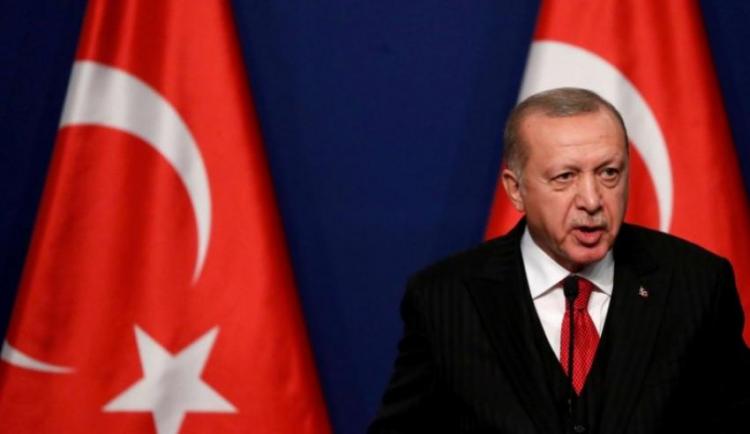IDLIB, Syria (North Press) – A large percentage of Syrians in Idlib and its countryside underestimate the importance of the statements made by Turkish President Recep Tayyip Erdogan regarding Idlib and the Syrian north in general.
The most recent was what he said in press statements "Our presence in Syria continues until its people gain freedom, and the Turkish army will remain there until the Syrian people gain freedom, security, and peace."
He recently said that "our country will not allow Idlib to transform into an environment of conflict again, and we will not allow the return of confrontations in Idlib, despite the regime's provocations in recent days, and we are doing what is necessary to prevent this."
However, in return for these statements, Russian-backed Syrian government forces, continue to send military reinforcements to Idlib on a clear path to return military operations to the area amid fears of the return of the displacement and in light of organizations' inability to provide even the most basic needs.
A crossroads
With the continued Turkish media statements and the military reinforcements of Syrian Government forces in the region, residents of Idlib stand at a crossroads, awaiting an unknown fate in light of the lack of confidence in Turkey, which made it clear that it is only concerned with its own regional interests.
Abu Ubadah al-Idlabi, a activist close to opposition groups in northern Syria, told North Press, "I heard many comments regarding the recent Turkish statements, and these comments are divided among those who look at it negatively, because they believe that Turkey is continuing to implement its understandings with Russia. This will lead to the loss of more land, as they don’t trust Turkey anymore."
“There are some people who are optimistic about these statements because they trust Turkey. They believe that its recent interference stopped the advance of the Syrian forces and restrained it from controlling Bab al-Hawa, that means the end of Idlib," he added.
"The Turkish statements stem from self-interest and not from the interest of the residents of the region, the interest of Idlib’s people in particular, and the general lies about the exit of every foreign fighter and the remaining of the people of the country,” media activist Ubaida Abu Omar, who lives in Idlib countryside, told North Press.
He pointed out that "Erdogan wants to reassure the people of Idlib and clarify that stability will be strictly in light of the Turkish presence, and that Idlib will not be safe unless it is subject to Turkey, which will protect it from the Syrian and Russian forces."
These Turkish statements come at a time when the residents of Idlib are suffering from bad economic and living conditions due to high prices and the instability of the exchange rate of local currency against the dollar, in addition to the lack of support provided by relief organizations.
At the grassroots level
Idlib-based media activist, Fadi Abu Ahmed told North Press that "At the grassroots level, the people are busy securing their basic living requirements in light of the growing and high levels of unemployment and increasing cases of extreme poverty."
He added, "It is difficult to clarify the mood of the people in the street, especially with the frequent reports of contradictory news, the most prominent of which is the end of the second stage of the recent Astana agreement to conduct joint Turkish-Russian patrols, and the transition to the third stage, which calls for the withdrawal of government forces and Iran to the countryside of Hama. At the same time it is rumored that the agreement failed due to the developments Libya, which confused the people and made them lose hope.”
Idlib's people are awaiting any serious solutions that end their suffering and anxiety about any deal that will result in international parties achieving their interests at the expense of the other parties in Idlib. Added to this is the lack of confidence in the opposition's military and civil institutions, due to its chaos, inabilty to address people’ needs, and its disregard for their suffering.

